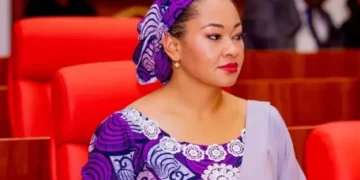An erudite professor of history in the Department of History and Strategic Studies at the University of Lagos, Professor David Aworawo, has said the advancement of Lagos State was laid by the earliest traditional rulers.
Aworawo commended the earliest traditional rulers of Lagos for laying the foundation for the state’s success, prosperity and advancement by opening its doors to foreigners and investors.
Presenting a paper at the fourth memorial lecture of King Kosoko held at Glover Memorial Hall, Lagos Island, on the topic, “The Lagos Kingship, its Territory, Culture, Traditions and its Districts before 1852.” Professor Aworawo said that Lagos’s emergence as the economic nerve centre of Nigeria was not by accident but due to what the earliest rulers of the state planned for, which was to open their doors to trade with foreigners, which later attracted investors.
Limiting his topic of discussion to “Governance and Development in Lagos up to 1852,” he noted that the earliest rulers were known for specific qualities, which included planning, organisation, commanding, organising, and control.
Aworawo explained that the current leaders of the state are building on the legacy left by the traditional rulers.
“Authority, unity and control lead to development. This applies to Lagos of today. Lagos is the sixth fastest-growing economy at present. The legacy of King Akinsemoyin and other kings that came after him (including Kosoko) has been sustained till today.” Professor Aworawo said.
He noted that King Kosoko’s energy and determination to achieve what he wanted to establish stood him out.
That is why he first fled to Epe when the British waged war against him for slave trading. More so, signing a treaty with the British allowed him to return as the Lagos Monarch in September 1853.
Aworawo also commended the traditional rulers for the structures they established to govern and administer Lagos, which he said contributed to the state’s growth and success.
In his paper, Professor Habeeb Abiodun Sanni of the University of Lagos, represented by Professor Bashir Animashaun, said Lagos was a cosmopolitan city before 1852, with a mixture of Ijebu, Awori, Brazilian, and Benin cultures.
He explained that, before 1852, the foundation for a modern state with political dynamism had been laid, which encouraged the British to settle in Lagos.
Aduke Gomez, the steering committee chairman of Art4life in Lagos State, said the kingdom of Lagos was geographically the economic hub of West Africa before 1851.
She said Lagos was seen as the most critical trading area because it is in the centre of the Lagoon.




